Am I abusing my cast iron skillet?
mally
17 years ago
Related Stories
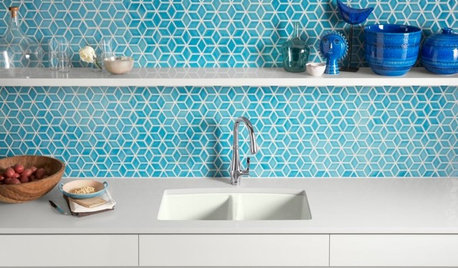
KITCHEN DESIGNKitchen Sinks: Enameled Cast Iron for Attractive Durability
Strong, shiny and sustainable, an enameled cast iron sink can bring character to your kitchen
Full Story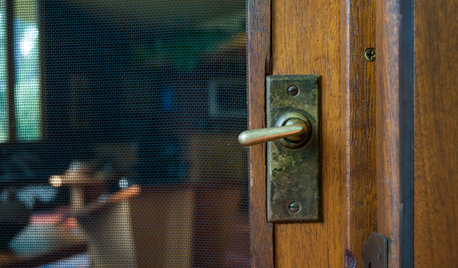
REMODELING GUIDESOriginal Home Details: What to Keep, What to Cast Off
Renovate an older home without regrets with this insight on the details worth preserving
Full Story
TROPICAL STYLECast Away for South Seas Style
Oh, to be in Tahiti right now. The next best thing: tips from South Seas resorts to create that lovely getaway feel at home
Full Story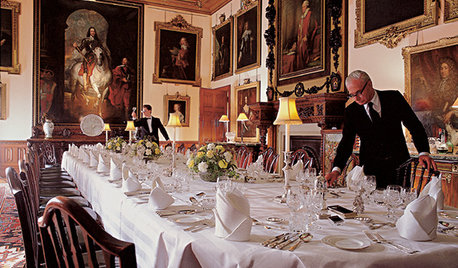
FUN HOUZZEverything I Need to Know About Decorating I Learned from Downton Abbey
Mind your manors with these 10 decorating tips from the PBS series, returning on January 5
Full Story
BACKYARD IDEAS7 Backyard Sheds Built With Love
The Hardworking Home: Says one homeowner and shed builder, ‘I am amazed at the peace and joy I feel when working in my garden shed’
Full Story
TASTEMAKERSPro Chefs Dish on Kitchens: Michael Symon Shares His Tastes
What does an Iron Chef go for in kitchen layout, appliances and lighting? Find out here
Full Story
PETS5 Finishes Pets and Kids Can’t Destroy — and 5 to Avoid
Save your sanity and your decorating budget by choosing materials and surfaces that can stand up to abuse
Full Story
WINTER GARDENING6 Reasons I’m Not Looking Forward to Spring
Not kicking up your heels anticipating rushes of spring color and garden catalogs? You’re not alone
Full Story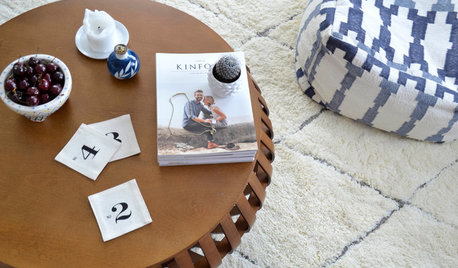
LIFEThe Polite House: How Can I Kindly Get Party Guests to Use Coasters?
Here’s how to handle the age-old entertaining conundrum to protect your furniture — and friendships
Full Story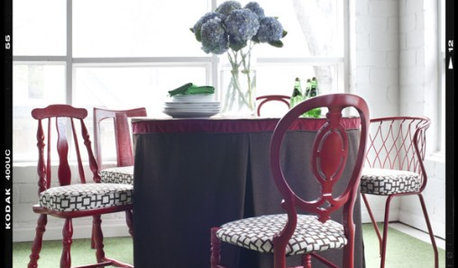
DECORATING GUIDESDIY Project: Sit Pretty with Mismatched Chairs
Create a one-of-a-kind dining set from a collection of cast-offs
Full StoryMore Discussions






gardenlad
teresa_nc7
Related Professionals
Peachtree City Furniture & Accessories · Union City Furniture & Accessories · Farmington Furniture & Accessories · Fountain Furniture & Accessories · Stamford Furniture & Accessories · Temple Terrace Furniture & Accessories · Bethpage Kitchen & Bathroom Designers · Georgetown Kitchen & Bathroom Designers · Portland Kitchen & Bathroom Designers · Bremerton Kitchen & Bathroom Remodelers · Channahon Kitchen & Bathroom Remodelers · Fair Oaks Kitchen & Bathroom Remodelers · Franconia Kitchen & Bathroom Remodelers · Oxon Hill Kitchen & Bathroom Remodelers · Red Bank Kitchen & Bathroom Remodelersvelodoug
mallyOriginal Author
jasper_austin
mallyOriginal Author
weedly
gardenlad
jessyf
gardenlad
jessyf
spewey
mallyOriginal Author
gardenlad
mallyOriginal Author
arley_gw
savvy_artist
savvy_artist
mallyOriginal Author
gardenlad
teresa_nc7
indylars
velodoug
gardenlad
User
tammylouise
mallyOriginal Author
bluelytes
simonaa
danab_z9_la